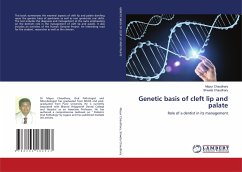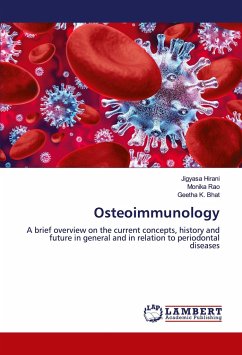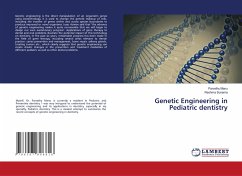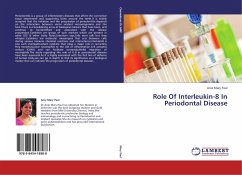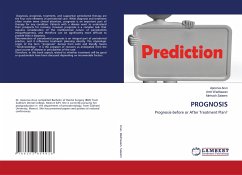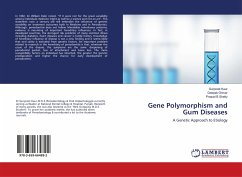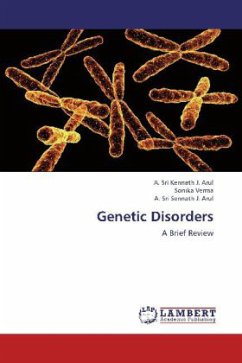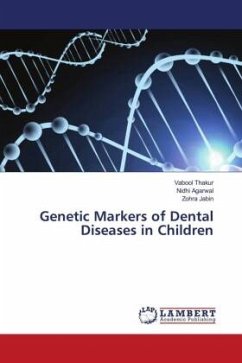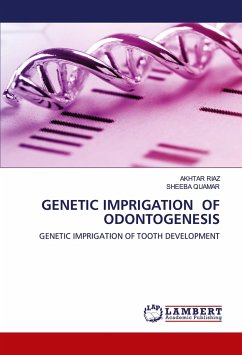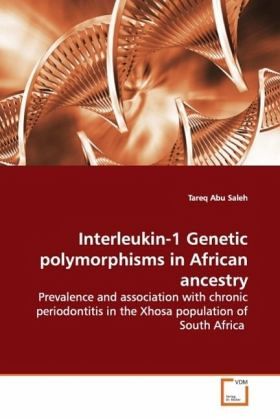
Interleukin-1 Genetic polymorphisms in African ancestry
Prevalence and association with chronic periodontitis in the Xhosa population of South Africa
Versandkostenfrei!
Versandfertig in 6-10 Tagen
32,99 €
inkl. MwSt.

PAYBACK Punkte
16 °P sammeln!
Bacterial pathogens are the primary aetiologic factors in periodontal disease. The disease process is modified by several risk factors, including; smoking, systemic diseases and genetic influences.Host response to periodontal disease is a protective as well as a destructive process and the role of pro-inflammatory cytokines, notably interleukin-1 in bone resorption and attachment loss has been reported.A specific polymorphism in the interleukin-1 gene cluster is associated with severity of periodontitis. Studies designed to estimate the genetic risk for periodontitis indicated that both smokin...
Bacterial pathogens are the primary aetiologic
factors in periodontal disease. The disease process
is modified by several risk factors, including;
smoking, systemic diseases and genetic influences.
Host response to periodontal disease is a protective
as well as a destructive process and the role of pro-
inflammatory cytokines, notably interleukin-1 in
bone resorption and attachment loss has been
reported.
A specific polymorphism in the interleukin-1 gene
cluster is associated with severity of
periodontitis.
Studies designed to estimate the genetic risk for
periodontitis indicated that both smoking habits
and ethnicity are confounding factors.
The prevalence of periodontitis appears to vary
between populations with different genetic
backgrounds, and findings from one ethnic group may
not be extrapolated to other ethnic groups. Perusal
of the literature indicates that this is the first
study to evaluate the prevalence of the interleukin-
1 composite genotype and its association with
chronic periodontal disease in a population of
African ancestry. The study results might be useful
to interested researchers and students alike.
factors in periodontal disease. The disease process
is modified by several risk factors, including;
smoking, systemic diseases and genetic influences.
Host response to periodontal disease is a protective
as well as a destructive process and the role of pro-
inflammatory cytokines, notably interleukin-1 in
bone resorption and attachment loss has been
reported.
A specific polymorphism in the interleukin-1 gene
cluster is associated with severity of
periodontitis.
Studies designed to estimate the genetic risk for
periodontitis indicated that both smoking habits
and ethnicity are confounding factors.
The prevalence of periodontitis appears to vary
between populations with different genetic
backgrounds, and findings from one ethnic group may
not be extrapolated to other ethnic groups. Perusal
of the literature indicates that this is the first
study to evaluate the prevalence of the interleukin-
1 composite genotype and its association with
chronic periodontal disease in a population of
African ancestry. The study results might be useful
to interested researchers and students alike.




